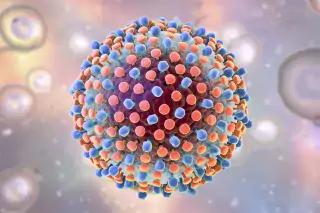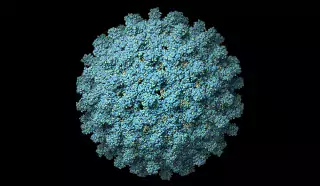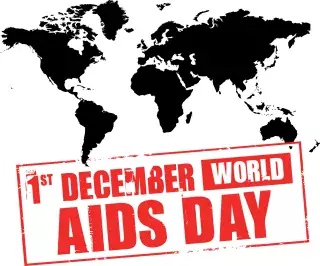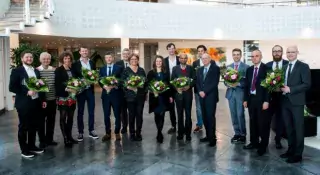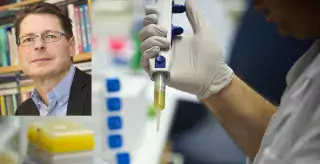News archive
On this page you can search for older news. Choose a topic, type of news or enter your own keyword to filter out news.
View compact

Children infected with the new coronavirus generally have less severe symptoms than adults, they rarely need intensive care and very few child deaths have been reported. This according to a systematic review of COVID-19 in children, based on 45 relevant publications and performed by researchers at Karolinska Institutet. The review is published in the scientific journal Acta Paediatrica.
News

Researchers at Karolinska Institutet in Sweden and the University of Basel in Switzerland have produced a mathematical model that shows that the spread of the new coronavirus can decline in the summer and then return in the autumn and winter. The analysis has been published in the scientific journal Swiss Medical Weekly.
News

A clinical phase I study led by the Public Health Agency of Sweden and researchers from Karolinska Institutet shows that a new vaccine for pertussis (whooping cough) given as drops into the nose is more efficacious than the current vaccine. The results of the study are presented in The Journal of Clinical Investigation. The vaccine will now be evaluated in a larger phase II clinical trial.
News
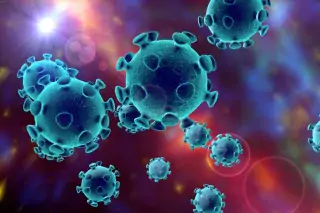
The new corona virus continues to spread despite significant measures taken by the authorities in China to stop the outbreak. However, this time the fast response coupled with increased knowledge about the nature of the virus means the world is better placed to handle the outbreak compared to 18 years ago when SARS caused widespread concern, says virus researcher Ali Mirazimi, adjunct professor at the Department of Laboratory Medicine at Karolinska Institutet.
News
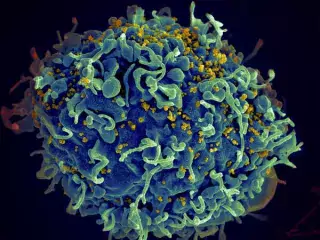
In a new study published in Nature Communications, researchers at Karolinska Institutet show that MAIT cells (mucosa-associated invariant T cells), part of the human immune system, respond with dynamic activity and reprogramming of gene expression during the initial phase of HIV infection. The study fills a knowledge gap, as previously there has been a lack of awareness of the function of MAIT cells during this particular phase.
News
Recently discovered immune cells called MAIT cells play a key role in group A streptococcal toxic shock, researchers at Karolinska Institutet report. The results, which are published in the journal PNAS, have potential implications for the diagnosis and treatment of this life-threatening condition.
News
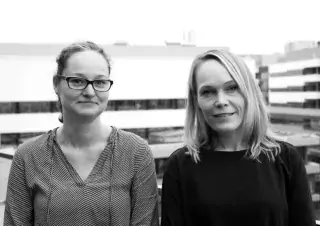
A type of immune cell called neutrophils could be responsible for controlling bacterial numbers of an antibiotic-resistant strain of Staphylococcus aureus (MRSA) on human skin before the bacteria get a chance to invade, according to a new study from Karolinska Institutet published in Cell Reports. The results could provide an explanation for why this superbug is only carried transiently by some people.
News
A new way of producing nanoparticles that can function as carriers in so-called mRNA vaccines has been developed by researchers at the Hong Kong node of Karolinska Institutet – the Ming Wai Lau Centre for Reparative Medicine – and the MIT, USA. Using the method, which is described in the scientific journal Nature Biotechnology, the researchers have identified a new class of carrier molecules that inhibit tumour growth and prolong survival in mouse models of cancer.
News
Approximately one out of every ten people with hepatitis B are coinfected with hepatitis D, which is among the most serious liver conditions. Researchers at Karolinska Institutet and their German colleagues have described the impact of chronic hepatitis D on parts of the immune system. The study was published in the Journal of Hepatology.
News
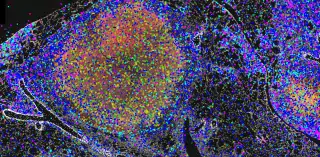
The picture above shows a tuberculosis (TB) infection in a mouse lung, in which immune cells form a granuloma around the bacteria. The different symbols represent working copies of active genes, called messenger RNA, which are different in the granuloma centre in comparison to the surrounding cells.
News
Pneumococci are the most common cause of respiratory tract infections, such as otitis and sinusitis, as well as of severe infections like pneumonia and meningitis. A new study from Karolinska Institutet published in Nature Microbiology shows how the bacteria can inhibit immune cell reaction and survive inside cells to give rise to pneumonia.
News
Successful pathogenic strains of pneumococci have two proteins that, owing to their location on the surface of the bacteria, enhance their survival and ability to cause disease, a study from Karolinska Institutet in Sweden published in Nature Communications, reports.
News
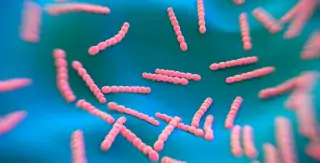
A special variant of a sugar molecule in the human nose might explain why pneumococcal infections are more common in humans than in other animals, researchers from Karolinska Institutet report in a study published in the journal Cell Host & Microbe. The discovery can help in the search for a broader vaccine able to protect against all types of pneumococci.
News
Johan Sandberg, who has worked at Karolinska Institutet since 2003, was appointed Professor in 2013 at Center for Infectious Medicine (CIM), Department of Medicine, Huddinge.
News



